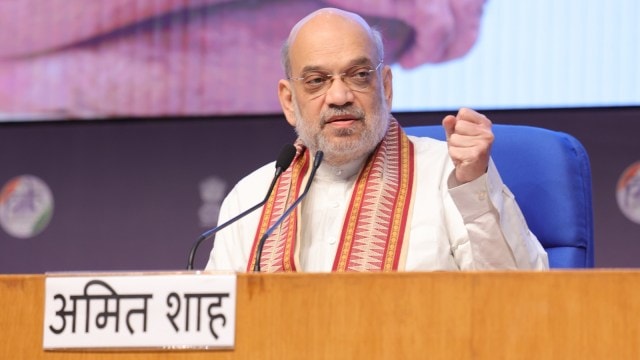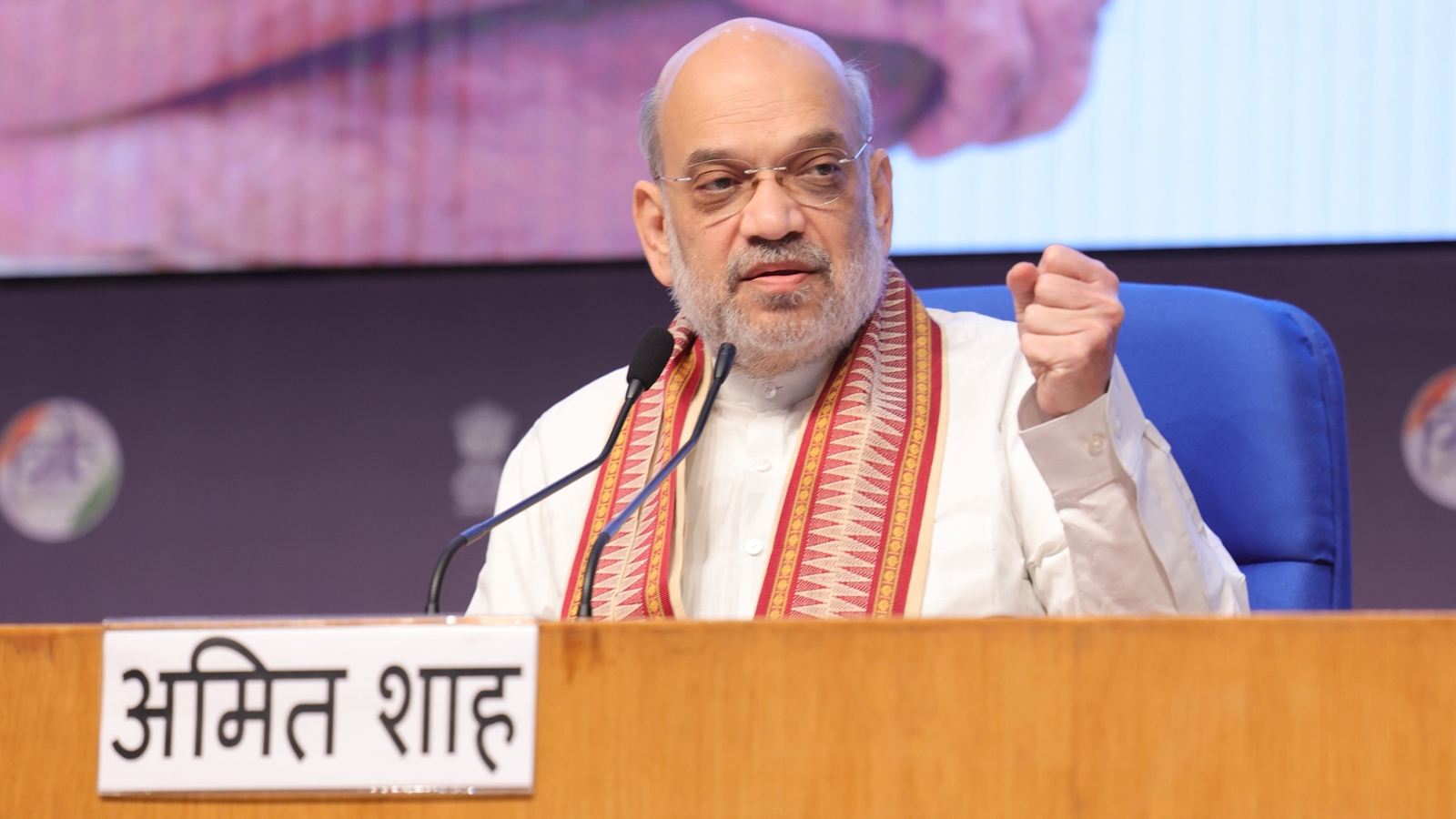

Abhik Bhattacharya
Dec 25, 2024 16:15 IST First published on: Dec 25, 2024 at 16:13 IST
In theology, heaven and hell have always been spaces of contention. In Abrahamic religions, one has to follow strictures to ascend to heaven. But in Hinduism, the idea is tied to karma — not of one birth, but of all the reincarnated avatars, unless one achieves moksha. Parliament, with its secular promises, should have been the last place to discuss the possibility of MPs going to heaven or hell. However, in the last few decades, one has realised that nothing is unusual, nothing is an aberration.
Union Home Minister Amit Shah, while addressing the Rajya Sabha, during the debates on Constitution in its 75th year, said, “Abhi ek fashion ho gaya hai — Ambedkar, Ambedkar, Ambedkar, Ambedkar, Ambedkar… Itna naam agar Bhagwan ka lete toh saat janmon tak swarg mil jata (There is a fashion these days — Ambedkar, Ambedkar, Ambedkar, Ambedkar, Ambedkar… Had you chanted the name of God so many times, you would have been blessed with heaven in seven births).” He also said that he was happy that B R Ambedkar’s name was taken.
His comments sparked a controversy, with the Opposition demanding the resignation of the Home Minister. Shah’s alleged “insult” to the chairperson of the Constitution drafting committee shouldn’t be taken only at face value. The contradiction between Shah’s foundational political principles and Ambedkarite views of emancipatory and libertarian politics are enmeshed in it.
Ambedkar not only religiously transcended the concept of heaven and hell, he metaphorically used the word “hell” to describe the prevailing conditions of Dalits. On October 16, 1956, a day after he addressed the conversion ceremony at Nagpur, where he led half a million Dalits to embrace Buddhism, he said, “The movement to leave the Hindu religion was taken in hand by us in 1935 when a resolution was made in Yeola. Even though I was born in the Hindu religion, I will not die in the Hindu religion. This oath I made earlier; yesterday, I proved it true. I am happy; I am ecstatic! I have left hell — this is how I feel. I do not want any blind followers. Those who come into the Buddhist religion should come with an understanding; they should consciously accept that religion.”
In 1935, when Ambedkar made the Yeola declaration, expressing his desire to renounce Hinduism, it received popularity among Dalits. Next year, on January 11 and 12, Madras-based leader Professor N Shivraj organised the Maharashtra Untouchable Youths Conference to support the declaration. Emboldened with conviction, Shivraj said, “The only way to get rid of untouchability is that the Depressed Classes should leave Hindu religion not necessarily by conversion to another religion already existing but possibly by starting a new religion, or by reviving the ancient one practised among the Adi-Dravidas, long before the Aryans brought to India Hinduism with its various customs.”
Ambedkar, however, was more cautious. He was still contemplating which religion to go for. He invoked the word “hell” again. And this time, he put it in contrast to the “paradise of equality”. Emphasising the significance of the struggle to achieve liberty and equality, he said that no conversion would relieve them from “hell” and would lead them to a “paradise of equality”. He continued, “We would have to fight for our welfare if we took to Christianity, Islam or Sikhism. It is foolish to suppose that in the event of our conversion to Islam, everybody from amongst us would be a Nawab or would become the Pope if we went over to Christianity. Go we may anywhere, fight is inevitable in store for us.”
most read
The way Ambedkar conceived the concept of “hell” is antithetical to the framework of Hindutva politics, which wants to assimilate Dalits into their fold as the “backward Hindus”. For the father of the Indian Constitution, “hell” was the place where Dalits were being pushed to through centuries of deprivation and marginalisation.
In the corridors of the Ambedkarite circle, a story circulates about his concept of hell and heaven. One day, in the evening, as he was listening to people at his Delhi residence, he heard some commotion on the street. He asked someone about it and was told that there was a death procession of around 10 people going to the Nigambodh ghat. After a few minutes, there was a louder noise. He went out of his house, only to find that another death procession was approaching with around a thousand people. He told one of his disciples that the second person was probably going to heaven as his life was beneficial to many people. People create hell or heaven depending on their behaviour, the story goes.
Shah perhaps missed the story. People might find ways to go to heaven by uttering Ambedkar’s name.
Why should you buy our Subscription?
You want to be the smartest in the room.
You want access to our award-winning journalism.
You don’t want to be misled and misinformed.
Choose your subscription package


